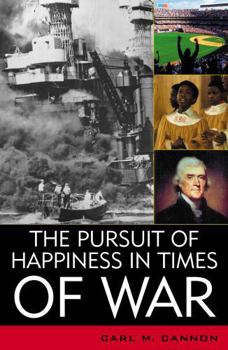The Pursuit of Happiness in Times of War (American Political Challenges)
Select Format
Select Condition 
Book Overview
Chapter 1 Preface
Chapter 2 I American Pie
Chapter 3 II A Felicitous Choice of Words
Chapter 4 III Everywhere in Chains
Chapter 5 IV Unfinished Work
Chapter 6 V "Peace Now "
Chapter 7 VI Happy Warriors
Chapter 8 VII More Unfinished Work
Chapter 9 VIII Pursuit of Knowledge
Chapter 10 IX True Happiness
Chapter 11 X Freedom Man
Chapter 12 Epilogue
Chapter 2 I American Pie
Chapter 3 II A Felicitous Choice of Words
Chapter 4 III Everywhere in Chains
Chapter 5 IV Unfinished Work
Chapter 6 V "Peace Now "
Chapter 7 VI Happy Warriors
Chapter 8 VII More Unfinished Work
Chapter 9 VIII Pursuit of Knowledge
Chapter 10 IX True Happiness
Chapter 11 X Freedom Man
Chapter 12 Epilogue
Format:Paperback
Language:English
ISBN:0742525929
ISBN13:9780742525924
Release Date:September 2005
Publisher:Rowman & Littlefield Publishers
Length:336 Pages
Weight:0.83 lbs.
Dimensions:0.7" x 6.1" x 8.6"












